The Illusionary FunHouse
of Social Media
of Social Media
A digital narrative experience illustrating the recursive effects of the algorithmic realm of social media.
Using expressive typography and digital illustrations, I created a looping Funhouse experience to take readers through a dark metaphoric journey of hypnosis and illusion.

Content
Through articles from The New York Review, The New Yorker, BookForum, and GQ, I sourced and stitched together a haunting story of social media.

Iterating
I iterated through various ways of manipulating typography and grid to create metaphoric loops and effects through the reading experience.

The Funhouse
Inspired by distortion mirrors, I started to create a journey through a funhouse, filled with dark and mysterious optical illusions.
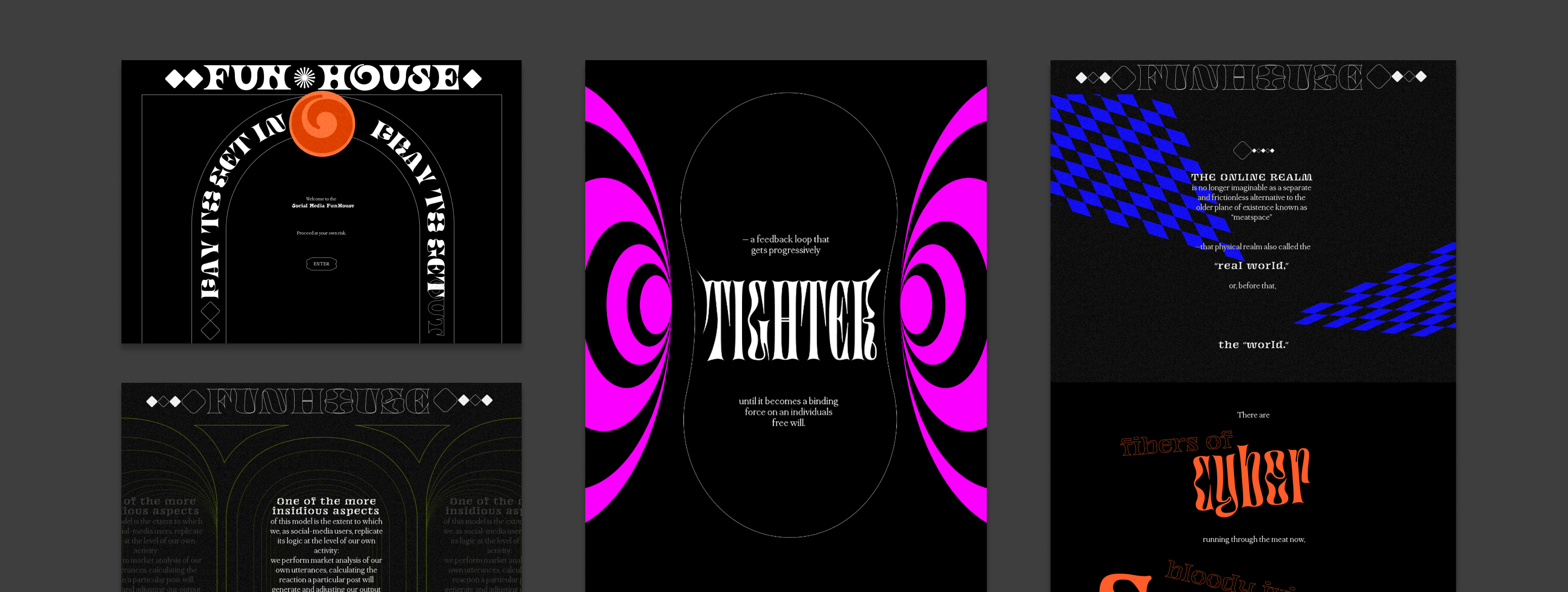
Through my iterations, I refined a cohesive visual style that eminates a foreboding darkness throughout each drastically different room.

Final
Perspective-shifting rooms, hypnotic algorithms, infinity mirrors, and distorting mirrors.
The user moves through the rooms with curiousity and ease, each with a metaphor representing its content and key words.
As the experience seemingly comes to an end with a rhetorical question: "what is wrong with us?", the funhouse experience loops as a metaphor for the inescapable, recursive effects of the digital realm.
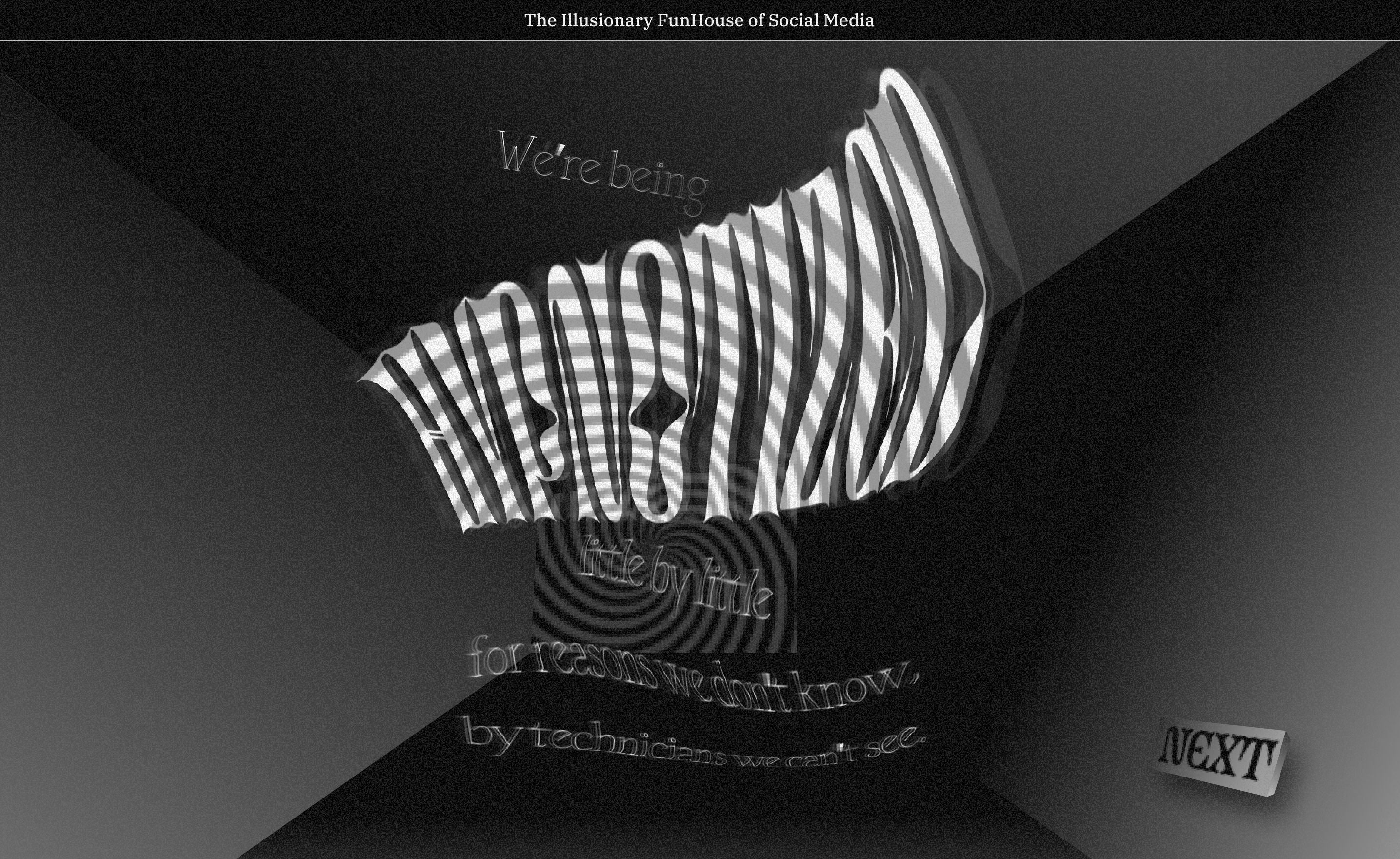

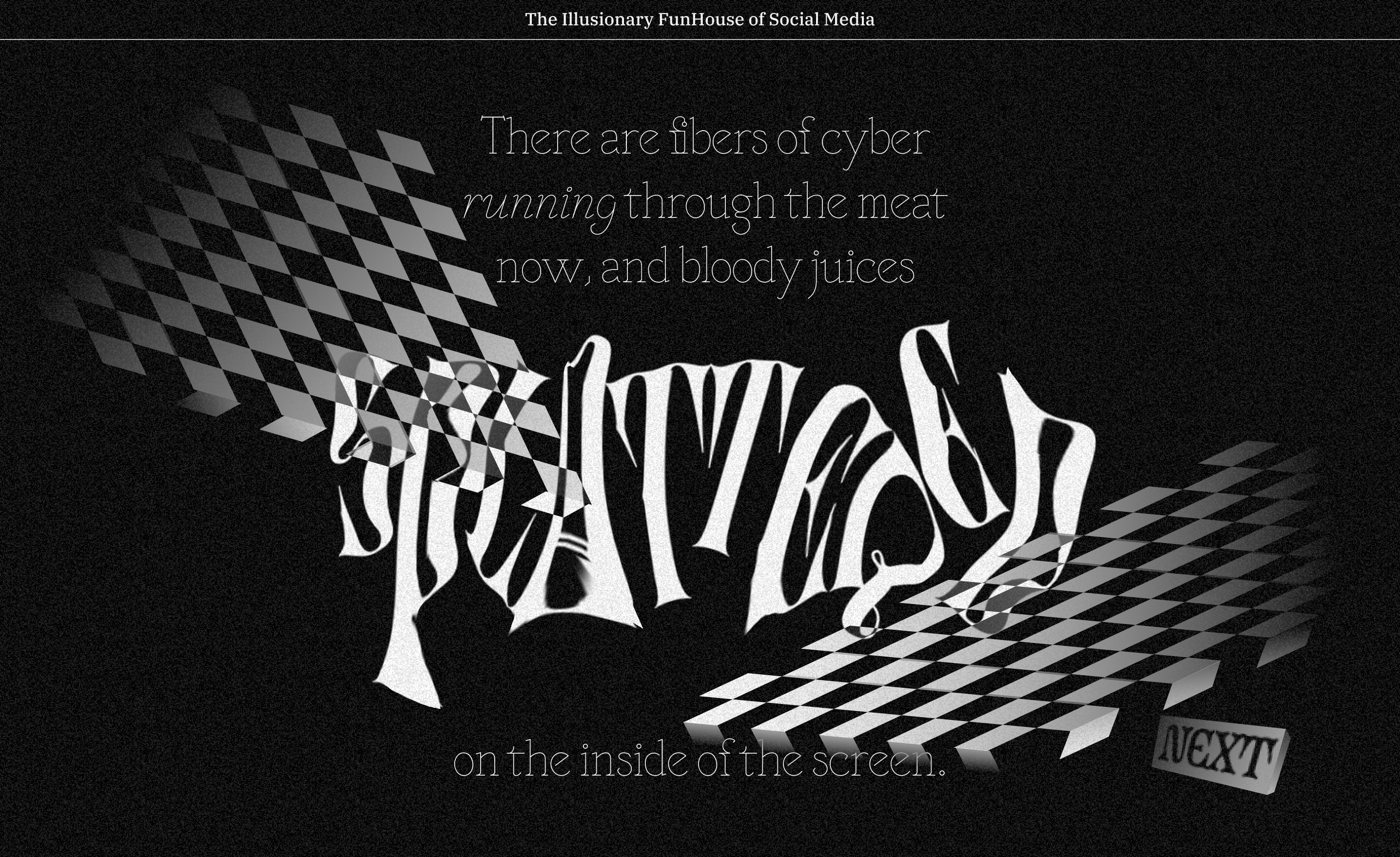
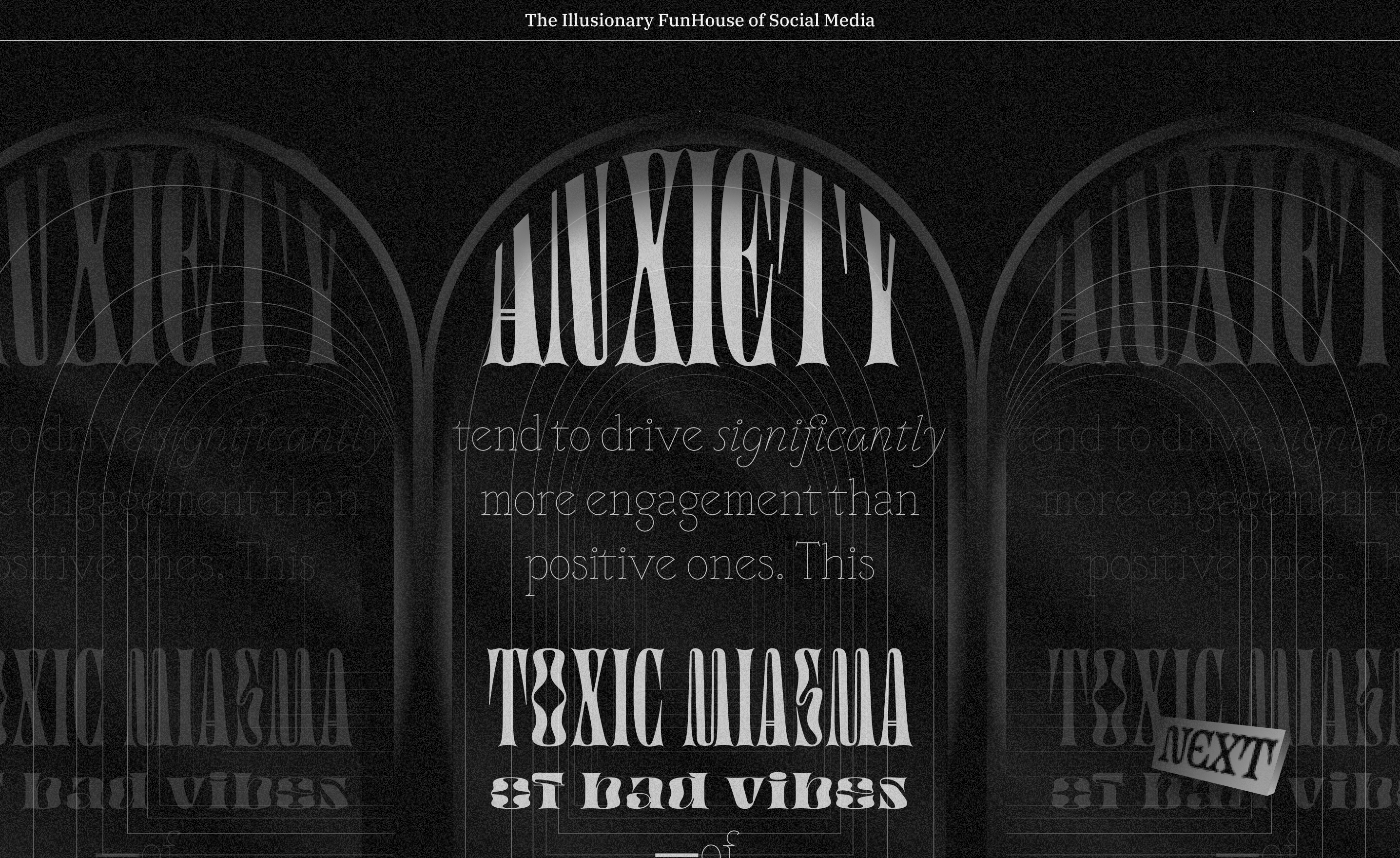
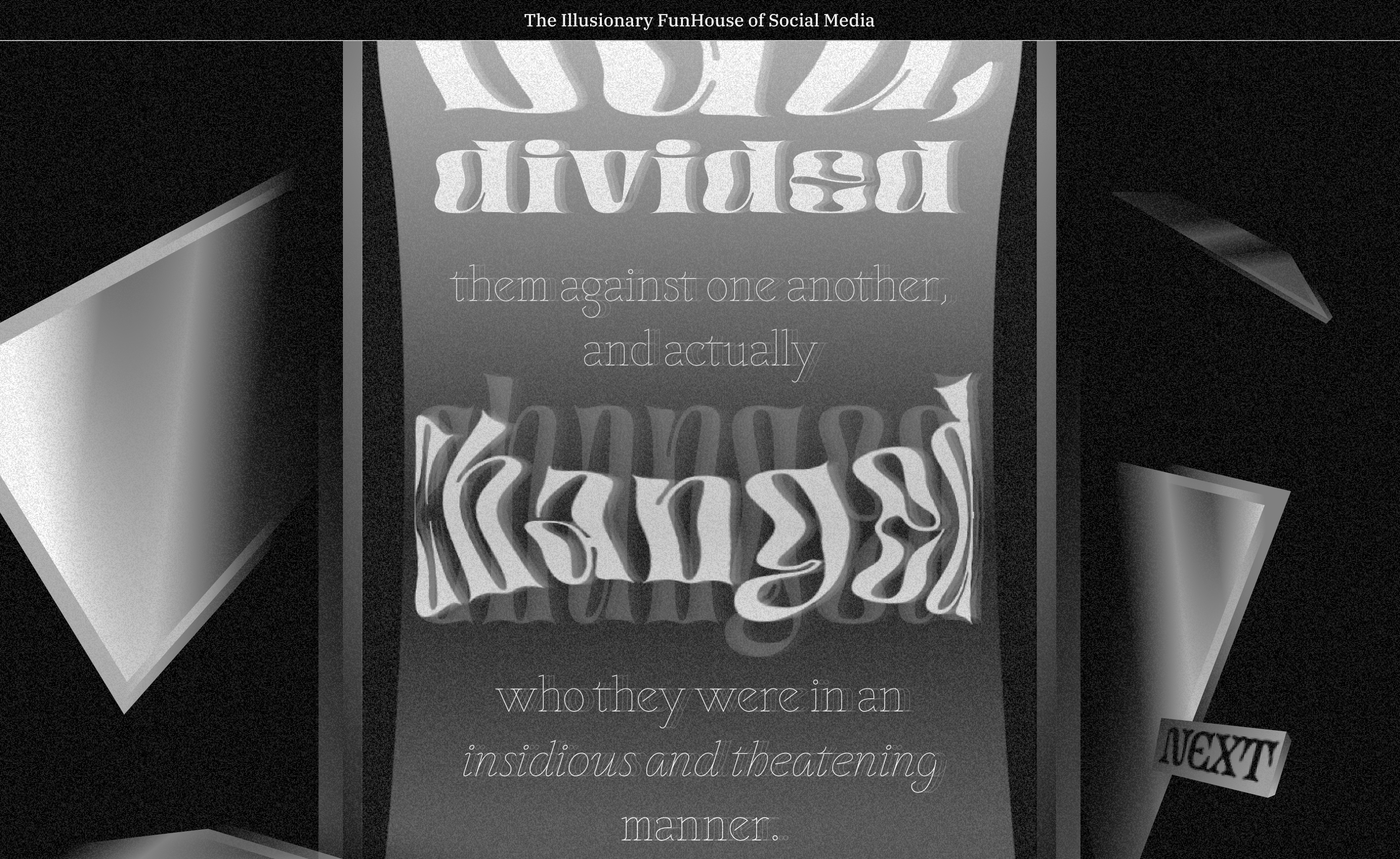

Reflections
“Don't mistake legibility for communication” - David Carson
Throughout this project, I often questioned the decisions I was making with typography since they often sacrificed the readability. I learned to consistently check my decisions by asking myself for the intent. Doing so, I was able to strengthen my ability to differentiate decorative and expressive typography and minimize unnecessary difficulty with readability. I look forward to carrying these decision-making skills over to other projects to maximize the effectiveness of my typography.